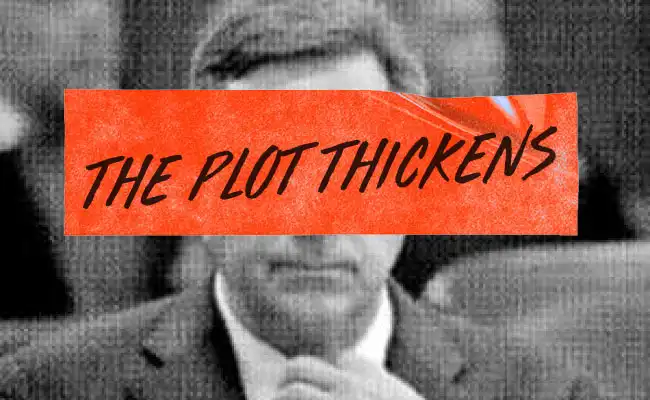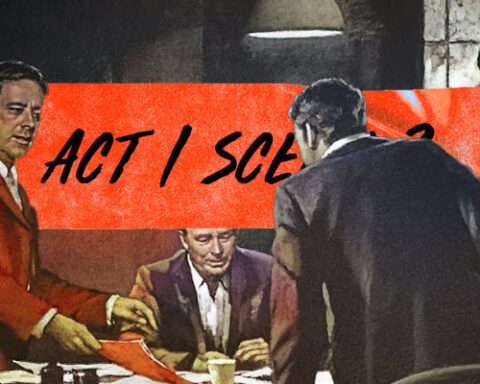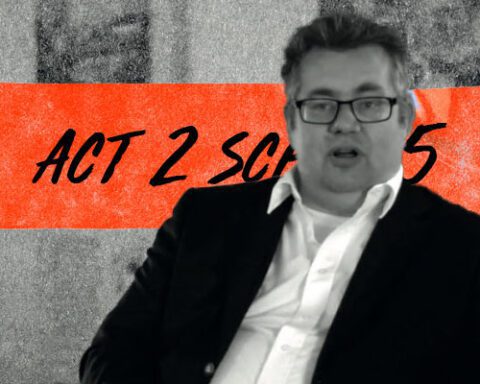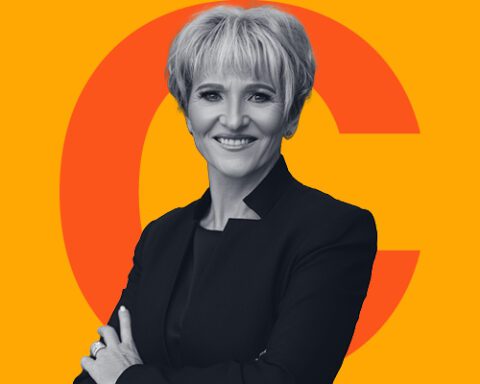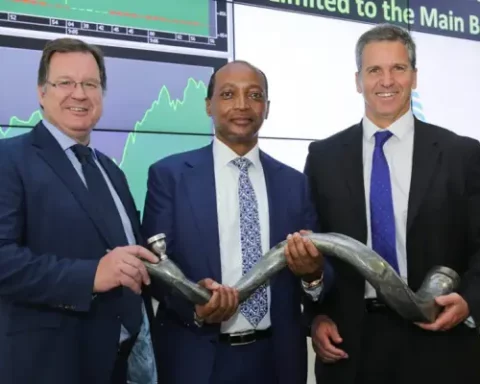All of a sudden, prosecutors have got serious about Steinhoff.
For seven years after the retailer imploded in December 2017, having copped to “accounting irregularities” and wiping R230bn off the JSE within days, very little happened. Police seemed to have gone in circles, bamboozled by the complexity of a fraud which had been so sophisticated it had slipped past auditors Deloitte, not to mention a star-studded board of accounting experts.
Finally, a week ago, the National Prosecuting Authority announced its first South African conviction for Steinhoff’s mega R106bn fraud — a little-known medical doctor named Gerhardus Burger, who had acted on a tip-off from his long-standing friend, the retailer’s former CEO Markus Jooste, and sold all his shares a week before the company blew up.
Burger, as remote a person from the central Steinhoff fraud as you could hope to find, was still given a five-year suspended sentence.
Now, a week later, prosecutors have claimed their biggest scalp – Steinhoff’s former finance chief Ben la Grange – albeit on a single fraud charge. La Grange took a plea deal in which he will serve five years in jail, with another five years suspended.
The irony was, had Jooste been around, rather than having shot himself on the cliff paths of Hermanus in March, a day after he was ordered to appear in Pretoria’s specialised commercial crimes court on charges of fraud, La Grange might have avoided jail entirely.
In an affidavit to court in June, La Grange revealed that “in early 2018, I was approached by the [police] to co-operate with the Hawks in the investigation into the affairs of Steinhoff as a potential state witness”.
For more than five years, La Grange co-operated with everyone from the Hawks, to the JSE, to the Financial Sector Conduct Authority and the South African Reserve Bank to unravel the fraud. His shot at being a state witness seemed secure.
And then Jooste shot himself – and the quest for accountability shifted from Jooste to the next most senior executive. Heads on a spike were needed.
In the end, La Grange was convicted of just one charge, fraud, relating to one of the most blatant episodes of the entire Steinhoff schlenter. It related to a €23m (R376m) invoice, which Jooste scribbled while on a private airplane trip back to South Africa on November 17 2016. He handed that handwritten note to La Grange, telling him this was money due to Steinhoff as “rebates” for goods sold in Europe.
La Grange was told to process this invoice, which he duly did, booking it against one of Steinhoff’s more anonymous subsidiaries, called Steinhoff@Work. Magically, it transformed a R47m loss into a R329m profit, adding an entirely unjustified sheen to what would otherwise have been pretty grim results.
“I thought [these deals] involved valid third parties,” La Grange told parliament in August 2018. “Now it seems these parties were in fact related to [Jooste].”
Essentially, what La Grange is admitting in his plea bargain is that he should not have booked that R376m in Steinhoff@Work and, as a result, the parent company’s financial statements were “not truthful and correct in material respects”. Conspicuously, he does not admit, however, that he knew these “rebates” were fake from the beginning.
And yet, what La Grange was accused of was just one minor sliver of the wider Steinhoff fraud, which involved many billions of rand, fictitious companies in Switzerland, and a dizzying array of transactions designed to dupe auditors or anyone watching. La Grange was not involved in those transactions in the same way that Jooste or his European accomplices, Siegmar Schmidt and Dirk Schreiber, were.
Ultimately, he was the person who, as luck would have it, inhabited the most senior financial role in a company that had suffered the biggest fraud in the country’s history. At its height, Steinhoff had risen to become the second-largest furniture retailer in Europe, with household brands including Conforama, Bensons for Beds, Poco and Kika/Leiner, as well as local brands like Ackermans and Pep.
Given Steinhoff’s size, and its place in the pantheon of South African cons, prosecutors knew they needed convictions.
Lenient or draconian?
So, was a five-year jail term, with five years suspended, a fair outcome considering La Grange’s limited involvement?
In the documents handed to court as part of the plea deal, the Hawks investigators outlined why they felt La Grange should get this reduced plea.
This included the fact that he had assisted all the regulators, that his involvement in the European operations where the fraud took place was “very limited” and that “Markus Jooste was the mastermind of the fraudulent scheme [and] La Grange was influenced by Jooste”.
But before the court accepted La Grange’s plea deal, investigators asked the original complainants — including Steinhoff, former chair Christo Wiese, Benguela Global Fund Managers founder Zwelakhe Mnguni, and the Public Investment Corporation (PIC) — for their views on whether they felt the punishment was appropriate.
Most were. However, PIC head Abel Sithole said in a letter to the Hawks that “our view is that the sentence is too lenient” given that the “fraudulent accounting practices which deceived investors happened under his watch”.
Sithole said there are wider imperatives, including the fact that “corruption and financial crimes are rife in South Africa, and it is important that the sentence agreement serves as a necessary deterrent to others”.
The criminal authorities understood this point. In the court documents, prosecutors said it was critical that this sentence send a signal to “company directors and officers on the risks to which they are exposed if they abuse their positions of trust”.
So in this context, a five-year sentence might seem light – but you can be sure that if Jooste had ultimately been tried, and found guilty, he would have faced many multiples of that.
In exchange for the reduced sentence, La Grange has now agreed to “assist the state and testify in further prosecutions” in the Steinhoff case.
But with Jooste dead, who could he possible testify against?
First off, there is still the prosecution of Stéhan Grobler, Steinhoff’s former head of treasury, who stands accused of helping Jooste fabricate documents. In the plea agreement, there is an intriguing line in which La Grange said that “Grobler and others” created documents to make it appear that money was owed.
Insiders say this refers to other senior people who may themselves soon face arrest. And if that happens, as some believe it will soon, this will be far from the final chapter written about Steinhoff.
